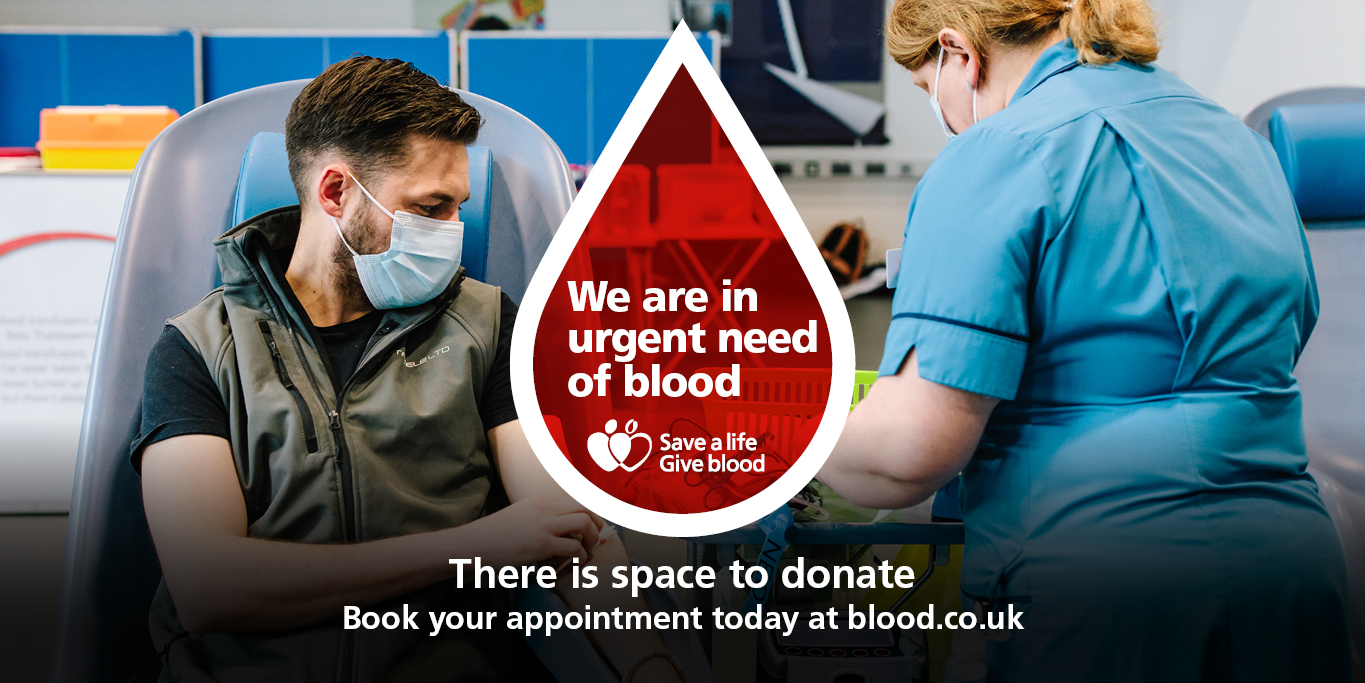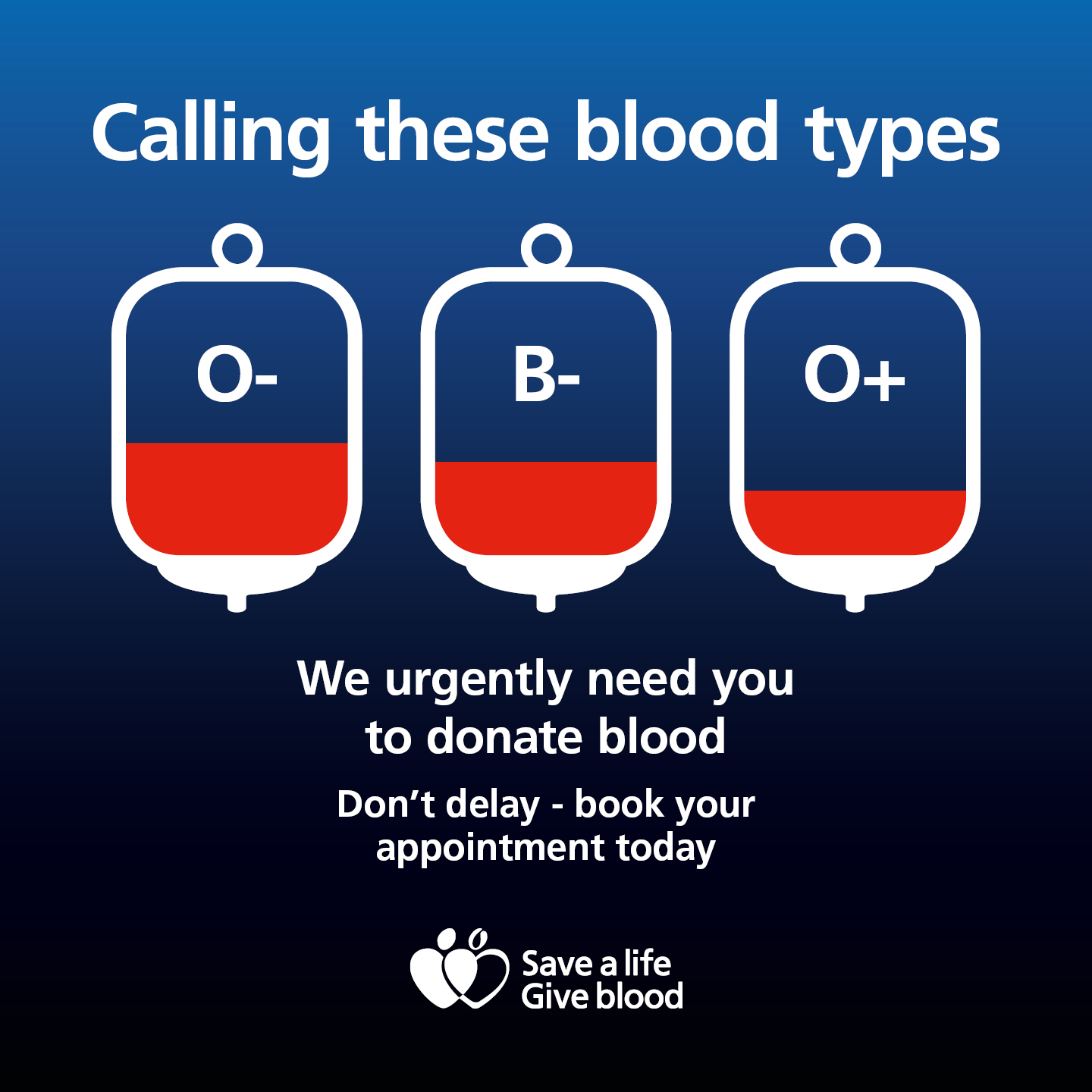
People are urged to donate blood as a national shortage, especially of certain blood types, threatens a crucial resource for transfusions and life-saving operations.
The NHS only has enough donated blood to last for two days. The NHS Blood and Transplant Service normally aims to have six days’ worth of blood on-hand for transfusions, operations and other procedures. To replenish this vital resource, the NHS is calling on everyone to donate blood if they can.
Without enough blood, important operations would be compromised or would have to be delayed – potentially jeopardising people’s lives. Labour and delivery is one example – women in childbirth are among the most common recipients of donated blood.
According to the service, every blood donation can save up to three lives an hour.
The shortage has been caused by a sharp decrease in donations since the start of the pandemic. Maintaining blood stocks has been an ongoing challenge due to staff shortages and increased sickness, particularly due to Covid, among staff and donors. Blood can only be stored for 35 days, so supplies constantly need to be replenished.
Of the eight blood types found in humans, O-, B- and O+ are in especially short supply. O- can be given to people of any blood type. O+ is the most common blood type, while B- is one of the rarest.

